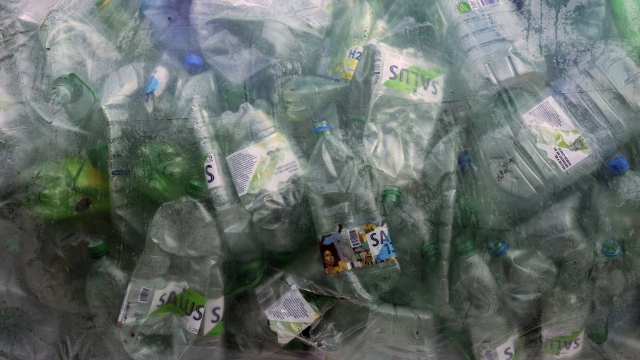Plastic is everywhere, and has become a part of our daily lives. So much so that traces of it can be found in our food — and even in our bloodstream.
One British study in 2019 suggested the average person might consume up to five grams of plastic a week — about the weight of a credit card.
"The effects of plastic on human health are real and cut across the entire lifespan," said Leonardo Trasande, director of NYU Langone's Center for the Investigation of Environmental Hazards.
Now, new research out Thursday from the Journal of the Endocrine Society shows chemical exposure from plastics has direct medical costs when it comes to human health.
The study estimated costs of $249 billion in "plastic-attributable disease burden" in the United States — almost 5% of U.S. health costs when looking at data from 2018. However, the study's lead author says the real number is likely higher.
"Now that's actually an underestimate for multiple reasons. We only looked at three categories of chemicals used in plastic materials," said Trasande, "and there are tens of thousands of chemicals used in plastic. So we are just barely scratching the surface."
One of the toxic groups of chemicals the study looked at is phthalates. Those are used to make plastic packaging more flexible, and traces of them have been found in many of the foods we eat.
These chemicals can affect the body's hormone systems and can cause cancer, diabetes, reproductive disorders and more. To date, the FDA currently allows eight phthalates used as plasticizers in food contact applications.
"Phthalates are still allowed in food packaging even though they've been banned from children's toys," said Trasande. "So we have a conundrum where the Consumer Product Safety Commission is regulating one way and the Food and Drug Administration is totally off the radar here."
The FDA says it's aware of new research on phthalates and requested information in 2022 on their use and safety in food contact applications, noting it "may use this information to update the dietary exposure estimates and safety assessments for the permitted food contact uses of phthalates."
SEE MORE: Nanoplastics way more common in bottled water than previously thought
Trending stories at Scrippsnews.com



